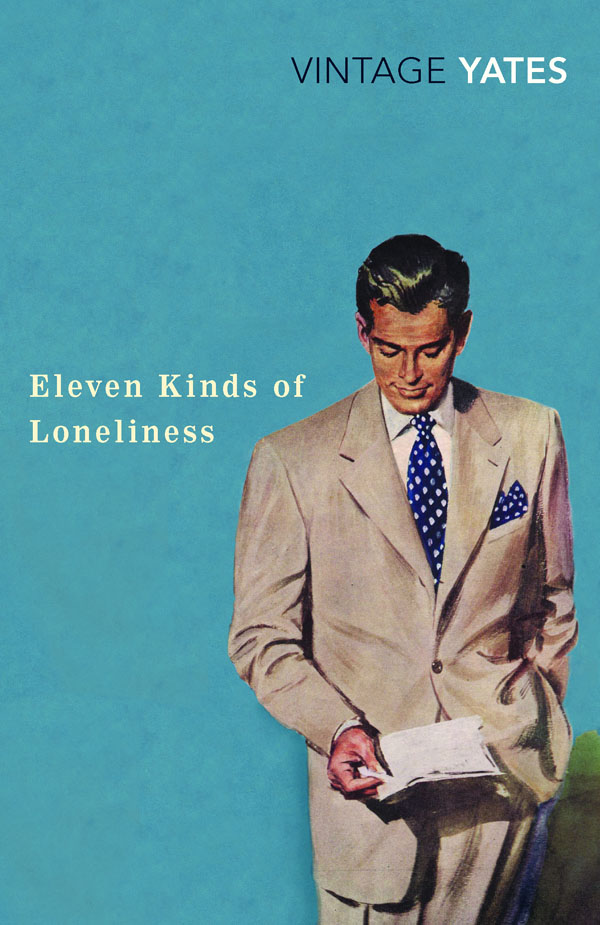Our book choice for August 2013 is Eleven Kinds of Loneliness by Richard Yates. We previously read Yates’s Revolutionary Road in 2010. In Eleven Kinds of Loneliness, his unflinchingly realistic stories explore loneliness, but they don’t neglect failure, cruelty, and heartbreak.
Eleven Kinds of Loneliness is a collection of 11 short stories by Richard Yates, published in 1962. The stories are all set in post-World War II New York, and they explore the theme of loneliness in its many forms. The characters in the stories are all struggling to find their place in the world, and they often feel isolated and misunderstood.
The Stories
The first story in the collection, “Doctor Jack-o’-Lantern,” tells the story of a young boy who is new to his school. He feels like an outsider, and he struggles to make friends. The story is a moving portrait of childhood loneliness.
“The Best of Everything” is the story of a young woman who is trying to find her way in the world. She is ambitious and talented, but she is also insecure and lonely. The story is a cautionary tale about the dangers of pursuing success at all costs.
“Jody Rolled the Bones” is the story of a young man who is addicted to gambling. He is willing to risk everything, including his relationships and his future, in order to get his next fix. The story is a dark and disturbing portrait of addiction.
“No Pain Whatsoever” is the story of a woman who is visiting her husband in the hospital. He has been diagnosed with tuberculosis, and he is slowly dying. The story is a heartbreaking portrait of loss and grief.
“A Glutton for Punishment” is the story of a man who is obsessed with his own failures. He is constantly reliving his past mistakes, and he is unable to move on with his life. The story is a sad and disturbing portrait of self-loathing.
“A Wrestler with Sharks” is the story of a man who is trying to make it as a writer. He is struggling with writer’s block, and he is feeling increasingly isolated and alone. The story is a powerful portrait of the creative process.
“Fun with a Stranger” is the story of a man who has a brief affair with a woman he meets on a train. The affair is passionate and exciting, but it is also ultimately unsatisfying. The story is a cautionary tale about the dangers of seeking love in all the wrong places.
“The B.A.R. Man” is the story of a man who is a regular at a bar. He is lonely and isolated, and he uses alcohol as a way to numb his pain. The story is a sad and disturbing portrait of alcoholism.
“A Really Good Jazz Piano” is the story of a man who is obsessed with jazz music. He is constantly searching for the perfect jazz piano player, and he is never satisfied. The story is a moving portrait of the search for perfection.
“Out with the Old” is the story of a man who is trying to come to terms with his aging. He is no longer the young man he once was, and he is struggling to find his place in the world. The story is a poignant portrait of aging.
“Builders” is the longest story in the collection. It tells the story of a group of men who are working on a construction project. They are all from different backgrounds, but they are all united by their common goal. The story is a powerful portrait of friendship and camaraderie.
Influence
Eleven Kinds of Loneliness has been praised by critics and writers alike. Kurt Vonnegut called it “the best short-story collection ever written by an American,” and Tennessee Williams said that it was “a deft, ironic, beautiful novel that deserves to be a classic.” The collection has had a significant influence on other writers, including Jay McInerney, Jonathan Franzen, and Jeffrey Eugenides.
Discussion Questions for Eleven Kinds of Loneliness
- Which story resonated most with you?
- What’s Yates saying about loneliness?
- How did the stories make you feel?
- Is it a book of its time? Or are there timeless themes?
- Are there any characters who you’re particularly drawn to?
- Would you recommend the book?
Individual Ratings
DKB's Rating 




Baljit's Rating 




EmmaJ's Rating 




EmmaT's Rating 




Catherine's Rating 




John's Rating 




Miranda's Rating 





